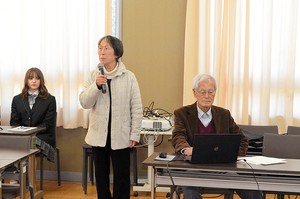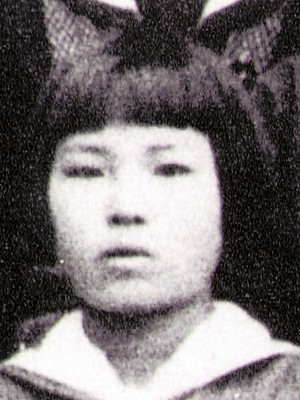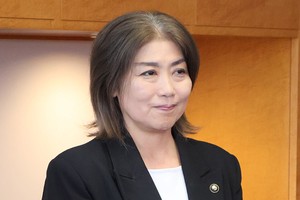November 29, 2022 at 13:16 JST
 Lawyers working to resolve problems involving the Unification Church meet reporters in Tokyo on Nov. 21. (Asahi Shimbun file photo)
Lawyers working to resolve problems involving the Unification Church meet reporters in Tokyo on Nov. 21. (Asahi Shimbun file photo)
The government has drafted a bill to restrict religious organizations’ use of fraudulent and unscrupulous methods for collecting donations and presented it to the ruling coalition on Nov. 28.
The government plans to formalize the bill shortly through a Cabinet endorsement for submission to the Diet.
The legislative initiative is the government’s response to a public outcry against activities of the Unification Church, formally known as the Family Federation for World Peace and Unification.
Will the proposed new measures provide effective relief to victims and their families and deter the Unification Church and other shady religious groups from using dishonest tactics to raise funds?
The ruling camp made some concessions to the opposition parties after one month of talks over the bill to allow some of the opposition demands to be incorporated into the bill. That is a welcome step forward. But the legislation still has some flaws.
The provisions that were newly added to the bill concern the requirements religious organizations must comply with when they seek donations. The provisions call on religious organizations not to put pressure on the free will of potential donors or throw them into a situation that makes it difficult to properly exercise judgment.
They also urge religious groups not to seek donations that make it difficult for the donors or their spouses and relatives to maintain their livelihoods. The bill also requires organizations asking for donations to disclose their identities and ensure that donors clearly understand how the money will be used.
All these requirements are common practices for ordinary corporations. But they had to be included in the bill because the church has violated such common-sense rules.
In many legal cases, the church has been found guilty of seeking followers without revealing its real identity or of using dubious tactics to push people into donating. It has, for example, stripped people of the ability to exercise their free will and convinced them that it is their mission to make donations by offering to “remove the bad karma of their ancestors.”
There is good reason to stipulate the requirements in the bill.
In other words, however, the bill only describes types of practices and tactics religious organizations should not use in seeking donations that have already been acknowledged to be illegal in court rulings.
Since the bill does not clearly ban these practices and tactics, violating the requirements does not lead to any administrative recommendations or orders let alone criminal punishment.
The government should carefully consider whether these acts should be clearly prohibited instead of simply making it mandatory for religious organizations to comply with the requirements.
On the other hand, the bill would ban acts of bewildering people to obtain donations from them by using spiritual sales or intimidation tactics. The bill also would give people the right to cancel any donations they have made against their will.
But it could be difficult to prove that people were “bewildered” or acted against their “will” when they made donations if the people have been exposed to extraordinary gospel preaching. That would be all the more so when such facts must be proved for each donation. These questions have yet to be resolved.
The bill would allow families of followers to exercise the followers’ right to cancel their donations to the group on their behalf as a special case of the so-called “obligee’s subrogation right” under Article 423 of the Civil Code. It is, however, unclear whether this approach will work.
The bill calls on the government to establish an effective system for the Japan Legal Support Center and other qualified organizations to provide counseling to victims and take measures to support victims. It is vital to provide continuous and long-term support to families of followers and adherents who are seeking to leave the group.
A new law is urgently needed to deal with the problem. This offers an opportunity to eradicate all fraudulent or unscrupulous ways to seek donations, not just by the church.
To ensure effective legislation, the Diet needs to listen to the voices of victims and lawyers involved in supporting them during deliberations on the bill after it is submitted. If there are any serious shortcomings in the bill, the Diet should rectify them in a flexible manner.
--The Asahi Shimbun, Nov. 29




















A peek through the music industry’s curtain at the producers who harnessed social media to help their idols go global.
A series based on diplomatic documents declassified by Japan’s Foreign Ministry
Here is a collection of first-hand accounts by “hibakusha” atomic bomb survivors.
Cooking experts, chefs and others involved in the field of food introduce their special recipes intertwined with their paths in life.
A series about Japanese-Americans and their memories of World War II